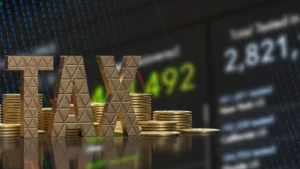
[ad_1]
At a latest G20 finance ministers’ gathering, wealthier international locations resisted efforts to reform tax techniques to bridge the inequality hole.
Oxfam Brazil’s analysis reveals a stark distinction in how G20 nations acquire taxes.
Wealth taxes contribute merely 8 cents to each tax greenback, a fraction of what’s obtained from consumption taxes, which account for 32 cents per greenback.
This discrepancy issues as a result of consumption taxes, considered as regressive by specialists, disproportionately burden the much less rich, amplifying monetary disparities.
Contrarily, the prosperous pay considerably much less in property taxes. Implementing a 5% wealth tax on high earners might increase about $1.5 trillion a yr, Oxfam Brazil proposes.

Nevertheless, the trail to honest taxation faces obstacles. G20’s wealthiest 1% earnings soared 45%, tax charges plummeted over 4 many years.
In 2022, this elite group amassed over $18 trillion, greater than China’s GDP, benefiting from decrease efficient tax charges than common staff in a number of international locations.
Brazil’s management within the G20 goals to counteract this development by proposing a worldwide tax on the super-rich to reduce worldwide inequality.
[ad_2]